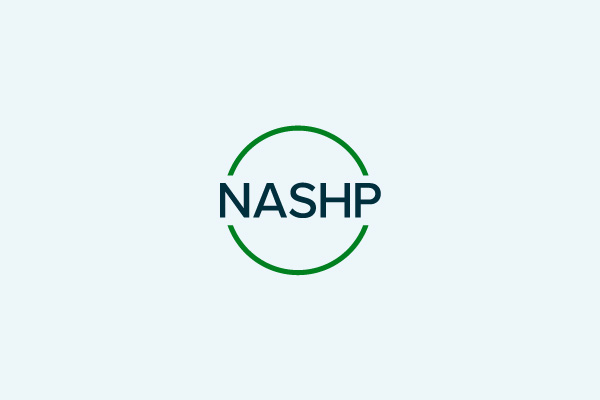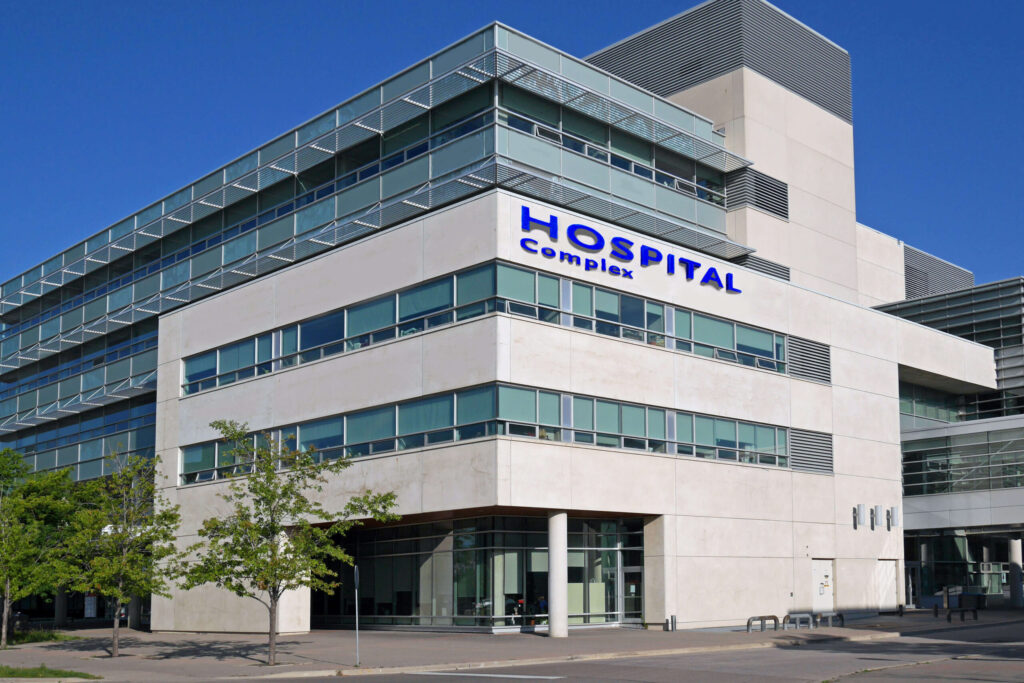Home visiting plays an important role in assuring women, children, and their families have access to quality health care. States use public and private funds to support home visiting programs, including state general revenue, Medicaid, Children’s Health Insurance Program (CHIP), and federal funding, such as the Maternal and Infant Early Childhood Home Visiting (MIECHV) program. NASHP has conducted a 50-state analysis of Medicaid and CHIP financing for home visiting. This 50-state analysis includes key features of state approaches including what federal authorities and/or benefit categories are used, populations eligible for services, and covered services.
Read the accompanying policy brief: Medicaid Reimbursement for Home Visiting: Findings from a 50-State Analysis (PDF)
Download the chart: 50-State Analysis: Medicaid Reimbursement for Home Visiting Services (PDF)
For questions or updates, please reach out to Anoosha Hasan at ahasan@nashp.org.
Key Terms
EPSDT: Early and Periodic Screening, Diagnostic and Treatment Medicaid benefit
FFS: Fee-For-Service – state Medicaid agency pays providers for each covered service provided
HANDS: Health Access Nurturing Development Services
HFA: Healthy Families America
HomVEE: Home Visiting Evidence of Effectiveness. Learn about models eligible for MIECHV funds.
HSI: Health Service Initiative
HV: Home visiting
MCO: Managed care organization
MIECHV: Maternal, Infant, and Early Childhood Home Visiting Program
MMC: Medicaid Managed Care
N/A: Not available
NFP: Nurse Family Partnership
PAT: Parents as Teachers
PMPM: Per member per month (or capitated rate)
TCM: Targeted Case Management
| State | Medicaid Reimbursement for HV? (Y/N) | Federal Authority and Medicaid Benefit Category | Medicaid Covered HV Services | Eligibility and Duration of Covered HV Service | Medicaid Reimbursement Structure | HomVEE Model(s) Required by Medicaid? (Y/N) |
|---|---|---|---|---|---|---|
| Alabama | Y | Federal Authority: State Plan Benefit Category: TCM Program Name: Nurse Family Partnership | Case management services include:
| Medicaid eligible women who are first-time mothers and/or who have a high-risk pregnancy[1] until the child’s second birthday | PMPM[2] | Y NFP |
| Alaska | N | – | – | – | – | – |
| Arizona | N | – | – | – | – | – |
| Arkansas | Y | Federal Authority: State Plan Benefit Category: Extended Services for Pregnant Women Program Name: Early Discharge Home Visit |
|
| FFS | N |
Federal Authority: CHIP State Plan Benefit Category: HSI Program Name: SafeCare Evidence-based Home Visiting Program |
|
| FFS | N | ||
| Y | Federal Authority: Waiver Benefit Category: 1115 Demonstration Program Name: Maternal Life360 HOME |
|
| PMPM[6] | Y[7] HFA PAT NFT | |
| California | N | – | – | – | – | – |
| Colorado | Y | Federal Authority: State Plan Benefit Category: TCM Program Name: Nurse Home Visitor Program | To bill for TCM, at least one of the following components must be provided:
|
| FFS | N |
| Connecticut | N | – | – | – | – | – |
| Delaware* | N | – | – | – | – | – |
| District of Columbia | N | – | – | – | – | – |
| Florida | Y | Federal Authority: Waiver Benefit Category: 1115 Demonstration[8] Program Name: Florida Healthy Start Program |
|
| FFS | N |
| Georgia | N | – | – | – | – | – |
| Hawaii | N | – | – | – | – | – |
| Idaho | Y | Federal Authority: State Plan Benefit Category: TCM Program Name: Targeted Case Management: At-Risk Children |
|
| FFS[9] | Y PAT NFT |
| Illinois | N | – | – | – | – | – |
| Indiana | N | – | – | – | – | – |
| Iowa | Y | Federal Authority: State Plan Benefit Category: Direct Care Services Program Name: Nursing Visit in the Home | Antepartum services:
Postpartum services:
|
| FFS | N |
| Kansas | N | – | – | – | – | – |
| Kentucky | Y | Federal Authority: State Plan Benefit Category: TCM Program Name: Kentucky Health Access Nurturing Development Services (HANDS) |
|
| FFS | Y HANDS |
| Louisiana | N | – | – | – | – | – |
| Maine* | N | – | – | – | – | – |
| Maryland* | Y | Federal Authority: State Plan Benefit Category: Preventive Service Program Name; |
|
| FFS | Y HFA NFP |
| Massachusetts | Y | Federal Authority: CHIP State Plan Amendment Benefit Category: Health Service Initiative Program Name: Healthy Families Massachusetts | Home visits with parent and child start with an initial assessment of risks, resilience, and opportunities for growth, followed by:
| Member eligibility:
Duration of Covered Home Visiting Service:
| Certified Public Expenditure (CPE) [11] | N |
| Michigan | Y | Federal Authority: State Plan Benefit Category: Extended Services to Pregnant Women and EPSDT Program Name: Maternal Infant Health Program |
|
| FFS and PMPM | N |
| Minnesota | Y | Federal Authority: State Plan Benefit Category: Other Practitioner’s Services Program Name: Family Home Visiting |
| Medicaid eligible pregnant women through the child’s third birthday | FFS[12] | N |
| Mississippi* | N | – | – | – | – | – |
| Missouri* | N | – | – | – | – | – |
| Montana | N | – | – | – | – | – |
| North Carolina* | Y | Federal Authority: State Plan Benefit Category: EPSDT Program Name: Newborn Home Visit |
|
| FFS | N |
| North Dakota | Y | Federal Authority: State Plan Benefit Category: TCM Program Name: Targeted Case Management for High-Risk Pregnant Women |
| Medicaid-enrolled pregnant women who are at high-risk for poor birth outcomes up to infant becoming six months of age, including one or more of the following:
| FFS | N |
| Nebraska* | N | – | – | – | – | – |
| New Hampshire | Y | Federal Authority: State Plan Benefit Category: Other Diagnostic, Screening, Preventive, and Rehabilitative Services Program Names: (1) Healthy Families America New Hampshire and (2) Comprehensive Family Support Services (CFSS) |
|
| PMPM or FFS[15] | N |
| New Jersey* | Y | Federal Authority: Waiver Benefit Category: 1115 Demonstration Program Name: New Jersey Home Visiting Pilot Program | Prenatal:
Postpartum:
Infant:
| Available as a pilot program for up to 500 families in 11 counties, including:
| PMPM | Y HFA PAT NFP |
| New Mexico | Y | Federal Authority: Waiver Benefit Category: 1115 Demonstration Program Name: Centennial Home Visiting Pilot | Prenatal:
Postpartum:
Infant:
|
| FFS[16] | Y PAT NFP |
| Nevada | N | – | – | – | – | – |
| New York | Y | Federal Authority: State Plan Benefit Category: TCM Program Name: First-time Mothers/ Newborns Program |
|
| FFS | N |
| Ohio | Y | Federal Authority: State Plan Benefit Category: Pregnancy Related Services/EPSDT Program Name: Nurse Home Visiting Program |
|
| FFS[18] and PMPM[19] | Y[20] NFP |
| Oklahoma | Y | Federal Authority: State Plan Benefit Category: TCM Program Name: Children First |
|
| PMPM[22] | Y NFP |
| Oregon | Y | Federal Authority: State Plan Benefit Category: TCM Program Name: Nurse-Family Partnership |
| Medicaid-enrolled pregnant and perinatal women and up to child’s second birthday with one or more of the following risk factors:
| FFS | N |
| Y | Federal Authority: State Plan Benefit Category: TCM Program Name: Babies First! |
|
| FFS | N | |
| Y | Federal Authority: State Plan Benefit Category: TCM Program Name: CaCoon |
|
| FFS | N | |
| Pennsylvania | Y | Federal Authority: Waiver Benefit Category: 1915(b) Program Name: Home Visiting Program |
|
| PMPM | N |
| Y[23] | Federal Authority: N/A Benefit Category: N/A Program Name: Nurse-Family Partnership | Case management service for the child once born |
| FFS[24] | Y NFP | |
| Rhode Island | Y | Federal Authority: Waiver Benefit Category: 1115 Demonstration Program Name: Family Home Visiting Program | Prenatal:
Postpartum:
Child:
| NFP: Medicaid-enrolled first-time, pregnant women who enroll before 28 weeks gestation until child’s second birthday HFA: Medicaid-enrolled pregnant women or parents of children under three months of age until child’s fourth birthday | FFS | Y HFA NFP |
| Y | Federal Authority: State Plan Benefit Category: Preventive Services Program Name: Family Home Visiting Program Services for Caregivers (Parents as Teachers) |
| Pregnant people and parents with children up to age 4 | FFS | Y PAT | |
| South Carolina | Y | Federal Authority: Waiver Benefit Category: 1915(b) Program Name: Enhanced Prenatal and Postpartum Home Visiting Pilot Project | Prenatal:
Postpartum:
Child:
|
| FFS[26] | Y NFP |
| South Dakota | N[27] | – | – | – | – | – |
| Tennessee | N | – | – | – | – | – |
| Texas | N | – | – | – | – | – |
| Utah | Y | Federal Authority: State Plan Benefit Category: Extended Services to Pregnant Women Program Name: Prenatal and Postnatal home visits |
|
| FFS | N |
| Y | Federal Authority: State Plan Benefit Category: TCM Program Name: Targeted Case Management for Children |
| All Medicaid children ages 0-4 | FFS | N | |
| Virginia | N | – | – | – | – | – |
| Vermont | Y | Federal Authority: Waiver Benefit Category: 1115 Demonstration Program |
|
| PMPM | N |
| Y | Federal Authority: State Plan Benefit Category: Extended Services to Pregnant Women Program Name:
|
|
| Sustained Family Support Home Visiting Program: PMPM Sustained Nurse Home Visiting Program: FFS | Y PAT | |
| Washington | Y | Federal Authority: State Plan Benefit Category: MSS: Extended services for pregnant people ICM: TCM Program Name: First Steps | Maternity Support Services (MSS), including:[28]
| To be eligible for MSS, beneficiary must:
To be eligible for ICM, beneficiary must:
| FFS | N |
| West Virginia* | Y | Federal Authority: N/A Benefit Category: N/A Program Name: Right from the Start | N/A |
| N/A | N |
| Wisconsin | Y | Federal Authority: State Plan Benefit Category: TCM Program Name: Prenatal Care Coordination |
|
| FFS | N |
| Wyoming | N | – | – | – | – | – |
TOTAL (51)** | Y: 29 N: 22 | State Plan: 23 Waiver: 8 | Pregnancy or Postpartum: 26 Children: 20 | FFS: 23 PMPM: 10 | Y: 13 N: 19 |
*The information NASHP compiled about this state was not confirmed by the state’s Medicaid or MIECHV officials.
** Some states have more than one home visiting program or may not be clearly defined under the categories listed, resulting in some duplication or variation in totals.
Specific information about state Medicaid programs’ reimbursement of home visiting services was collected and analyzed from state Medicaid managed care contracts, state policy manuals, and other publicly available materials.
Endnotes
- High-risk pregnancy includes consideration of the mother’s age (less than 17 or older than 35), previous negative pregnancy outcomes, and those with existing medical conditions prior to becoming pregnant (e.g., high blood pressure, diabetes, sexually transmitted diseases).
- NFP services will be reimbursed once per month, per participating family unit/NFP Client ID in the amount of $765.47. The first date of service eligible for payment was July 1, 2022.
- If a certified nurse-midwife chooses to discharge a low-risk mother and newborn from the hospital early (less than 24 hours), the certified nurse-midwife may provide a home visit to the mother and baby within 72 hours of the hospital discharge or the certified nursemidwife may request an early discharge home visit from any clinic that provides perinatal services. Arkansas Medicaid Health Care Providers, Provider Manual Update Transmittal No. 59. https://www.sos.arkansas.gov/uploads/rulesRegs/Arkansas%20Register/2005/jun-2005/016.06.05-047.pdf
- Each SafeCare evidence-based home visiting program activity typically involves one assessment session and five training sessions.
- The SafeCare evidence-based home visiting program is designed to improve the health and safety of young children for families with a history of child maltreatment or risk factors for child maltreatment, including young parents; parents with multiple children; parents with history of depression or other mental health problems, substance abuse or intellectual disabilities; parents being reunified with their children; parents recently released from prison and parents with a history of domestic violence or intimate partner violence. The program also serves parents of children with developmental or physical disabilities or mental health, emotional or behavioral issues.
- Hospitals will be paid a monthly rate based on the number of clients being served.
- Life360 hospitals are required to implement evidence-based home-visitation models that meet the U.S Department of Health and Human Services department’s criteria as an evidence-based home visiting service delivery model (e.g. Healthy Families America, Parents as Teachers or Nurse Family Partnership) to support the mother and the child.
- “Managed Medical Assistance Program AHCA Contract,”, The Agency for Health Care Administration, September 1, 2021. https://ahca.myflorida.com/medicaid/statewide_mc/pdf/Contracts/2021-10-01/Exhibit_II_A_MMA-2021-10-01.pdf
- Providers are paid on a unit-of-service basis that does not exceed one unit (encounter) per day. The rate for reimbursement for Home Visiting services is computed as follows: Compute the Total Encounters, Compute the Total Allowable Medicaid Program Expenditures, Divide the Total Allowable Medicaid Program Expenditures by the Total Encounters, Equals Reimbursable Cost Per Encounter. The Department’s rates are the rates paid in all areas of the state, and all providers receive the same rate.
- Federal Financial Participation (FFP) is attached to the child, therefore, MassHealth claims FFP on spend for Medicaid eligible members receiving services from Healthy Families as a CPE.
- Service is available during both prenatal and postpartum home visit.
- $140 per visit for HomVEE models and $25-$110 per visit for non-HomVEE models.
- Full list of covered services found in He-W 549.05. https://casetext.com/regulation/new-hampshire-administrative-code/title-he-department-of-health-and-human-services/subtitle-he-w-former-d-ivision-of-human-services/chapter-he-w-500-medical-assistance/part-he-w-549-home-visiting-new-hampshire-and-childfamily-health-care-support-services/section-he-w-54905-covered-services
- Part He-W 547 Home Visit for Postpartum and Newborn Assessment. Accessed August 17, 2022.
- FFS for people who are be exempt from MCO enrollment.
- NFP is limited to 64 total visits and PAT is limited to 98 total visits.
- These services are limited to the following geographic areas: New York City, Monroe, Albany, Erie, Cayuga, Chautauqua, Nassau, Niagara, Chemung, Westchester, and Onondaga Counties.
- Ohio managed care entities fund three NFP sites using infant mortality grants. Ohio Medicaid’s Maternal and Infant Support Program is working to design a new Medicaid evidence-based home visiting benefit. Accessed August 22, 2022. https://medicaid.ohio.gov/static/Families%2C+Individuals/Programs/MISP/Nurse+Home+Visiting+July+29+28Jul21.pdf
- Please see Ohio Administrative Code (OAC) 5160-21-05 https://codes.ohio.gov/ohio-administrative-code/rule-5160-21-05 which outlines coverage and payment for nurse home visiting services.
- Medicaid beneficiaries receiving these services must be deemed “high risk” per definition in OAC 5160-21-05 to be reimbursed by Medicaid.
- Oklahoma Secretary of State Administrative Rules: Admin Code 310:528-1-3
- $13.98 per unit for Targeted Case Management.
- The Office of Child Development and Early Learning (OCDEL)-supported NFP programs may be able to bill Medicaid for home visits if the child has Medicaid and the program is using state funds from OCDEL to support the child and family.
- $77 per visit for the child. A unit must be at least 15 minutes.
- As of August 30, 2022, eligible counties include Abbeville, Anderson, Barnwell, Berkley, Charleston, Colleton, Darlington, Dillon, Dorchester, Edgefield, Florence, Georgetown, Greenville, Greenwood, Horry, Lexington, Marlboro, McCormick, Oconee, Orangeburge, Pickens, Richland, Saluda, Spartanburg, Union, and Williamsburg counties.
- Reimbursement is available for up to 40 home visits during the eligibility period.
- The Department of Health receives Medicaid reimbursement for allowable administrative activities of nurses and support staff for its home visiting program.
- Other non-home visiting services are available through the First Steps program including medical services, expedited drug and alcohol services, and additional services (e.g., transportation and interpreter services).
Acknowledgements
Veronnica Thompson and Anoosha Hasan contributed to this publication through research. NASHP thanks the state Medicaid and MIECHV officials for their review. This 50-state analysis was made possible by the Health Resources and Services Administration (HRSA).



